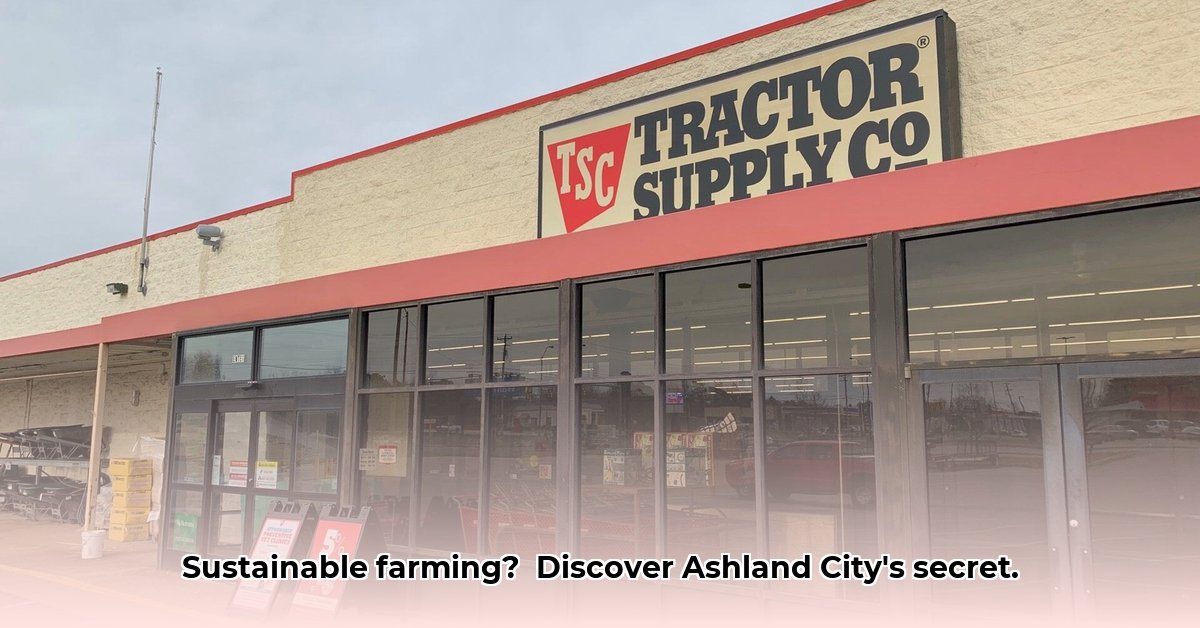
Tractor Supply's Role in Ashland City's Sustainable Agriculture
Tractor Supply (TS) in Ashland City, Tennessee, serves as a significant provider of agricultural supplies for both large-scale farms and smaller, home-based gardening operations. Its broad selection of products, ranging from animal feed and fertilizers to tools and equipment, contributes to the convenience and operational efficiency of local agricultural practices. For examples of similar TS locations, see this example. However, the extent of TS's contribution to sustainable agriculture within the Ashland City community remains unclear due to a lack of readily available data regarding the sourcing and environmental impact of its product lines. This necessitates a closer examination of its practices and a collaborative effort to enhance sustainability initiatives. A key question arises: How effectively does Tractor Supply's current product offering truly support sustainable farming practices in Ashland City?
Building a Greener Future: Collaborative Sustainability Efforts
Achieving sustainable agriculture in Ashland City requires a multifaceted approach involving Tractor Supply, local farmers and gardeners, and the local government. Short-term and long-term strategies must be implemented to address the challenges and opportunities presented by the current agricultural landscape.
Short-Term Goals (Within the Next Year)
Enhanced Product Transparency: Tractor Supply should prioritize increased transparency regarding the origin and production methods of its products. This includes clearly labeling products sourced from sustainable and organic farming practices, such as organic certifications or sustainably harvested materials. This will empower consumers to make informed choices and directly support sustainable production.
Farmer Feedback Mechanism: Tractor Supply should establish a robust communication channel, perhaps through surveys or focus groups, to actively solicit feedback from local farmers and gardeners concerning their needs and preferences for sustainable agricultural supplies. This direct feedback loop will inform product sourcing and stock management decisions.
Local Government Incentives: The Ashland City government should explore implementing incentives, such as tax breaks or subsidies, to encourage the adoption of sustainable farming practices by local farmers. These incentives can mitigate the economic barriers some farmers may face when transitioning to more sustainable methods.
Long-Term Vision (Over the Next Few Years)
Comprehensive Sustainability Plan: Tractor Supply should develop a detailed and measurable sustainability plan outlining its commitments, targets, and monitoring protocols. Such a plan should include specific goals for increasing the proportion of its product offerings sourced from sustainable and organic producers. This plan should be publicly available to demonstrate accountability and transparency.
Community Engagement and Education: A collaborative effort involving Tractor Supply, local agricultural experts, and the Ashland City government should develop and implement community workshops and educational resources. These initiatives should focus on promoting best practices in sustainable agriculture and providing farmers with the necessary knowledge and skills to adopt sustainable farming techniques effectively.
Community-Wide Sustainability Framework: The Ashland City government should lead the development of a comprehensive community-wide sustainability plan, bringing together various stakeholders, including Tractor Supply, farmers, environmental organizations, and community members. This collaborative approach ensures a coordinated and comprehensive strategy for advancing sustainable agriculture and environmental stewardship within the entire community.
Addressing Challenges to Sustainable Agriculture
Several challenges hinder the widespread adoption of sustainable agricultural practices in Ashland City. A strategic approach to overcome these obstacles is crucial for achieving long-term sustainability.
| Challenge | Severity | Mitigation Strategy |
|---|---|---|
| Reliance on Conventionally-Grown Products | Moderate | Gradual increase in the availability of certified organic and sustainably-sourced products, coupled with transparent labeling and consumer education. |
| Lack of Product Sourcing Information | High | Full transparency regarding product origins and production practices, clearly stated on packaging and available online. |
| Supply Chain Vulnerabilities | Moderate | Diversification of suppliers and development of strong, reliable partnerships with sustainable producers, addressing potential disruptions. |
| Limited Community Engagement | Moderate | Investment in comprehensive community engagement initiatives including workshops, outreach programs, and direct communication with farmers and gardeners. |
Navigating Regulations and Building Trust
Compliance with relevant regulations regarding pesticides, animal feed safety, and environmental protection is paramount for Tractor Supply and all agricultural stakeholders. Adherence to these regulations fosters public trust and ensures the responsible use of resources and protection of the environment.
Conclusion: A Shared Commitment to Sustainable Agriculture
Tractor Supply holds significant potential to contribute substantially to the advancement of sustainable agriculture in Ashland City. However, realizing this potential requires a concerted effort from all involved parties. By proactively implementing the recommendations outlined above, Tractor Supply, local farmers, and the Ashland City government can collaboratively create a more sustainable and prosperous future for the local agricultural community. Continuous monitoring, evaluation, and adaptation will be essential in navigating the evolving landscape of sustainable agriculture and ensuring its long-term success.